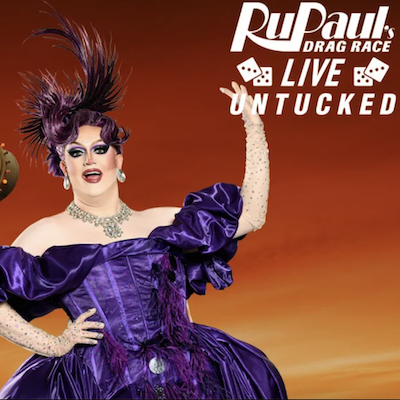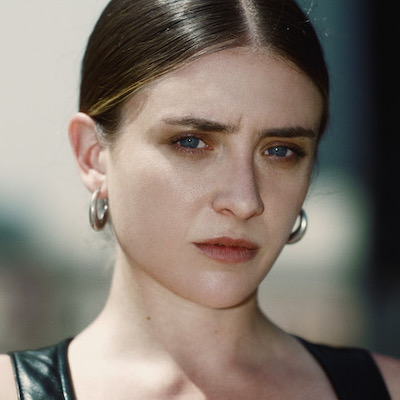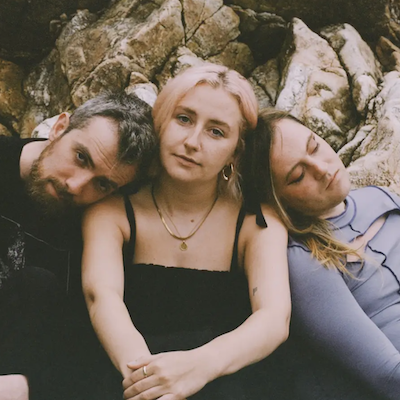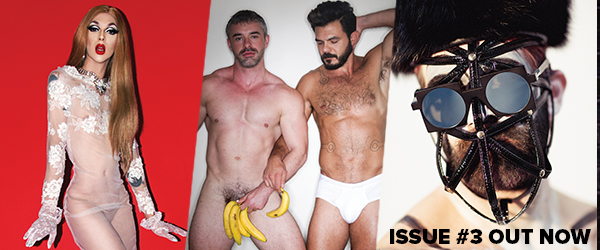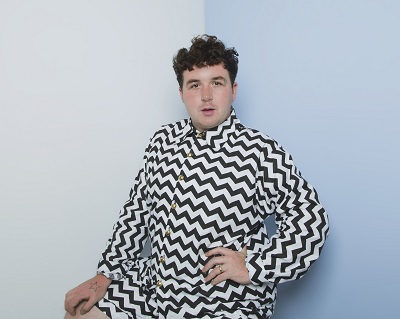
"Lip-sync is more than a queer art form; it’s essentially queer folk"
Performance artist Scottee has long been wowing audiences with his high-camp, challenging and exhilarating shows exploring queerness and identity. Now, he’s stepped from centre stage into the role of director with this debut work, Putting Words in Your Mouth, featuring three exciting young performers Lasana Shabazz, Jamal Gerald, and Travis Alabanza. Pre-Brexit, Scottee travelled the UK talking to LGBTQI people who are disillusioned and angered by mainstream politics. Scottee discussed with them what it means to be British and queer and got some complex responses that promise to challenge, shock and surprise in their retelling. For Putting Words in Your Mouth is ‘a lip-sync marathon that is messy, in more ways than one’. Loverboy’s Fallon Gold spoke with Scottee about his directorial debut.
Tell us about Putting Words in Your Mouth
Putting Words in Your Mouth is a show that kind of happened by accident. Two years ago I started to investigate where queer people were at with their identities – with their political identities, their sexual identity and their national identity, and from recorded conversations I’ve created a show which kind of responds to that. It’s a show which is a lip-synch marathon and it kind of explores… I guess Thatcher’s legacy on our community – and by that I don’t mean just Section 28 I mean some of the murky legacy that maybe has gone slightly unseen.
You’re drawing on the legacy of Thatcher’s Britain. I remember the Thatcher years – I grew up in them. They notoriously decimated the arts but also produced some of the most stunning political theatre: feminist, working class, gay (wasn’t called queer then!). We’re in a similar time now – do you see this as a restrictive or a fruitful time for queer and/or political art?
It’s such a tough one because when the shit hits the fan, art gets good, because it means then a lot of artists turn to socially-engaged practice or political work. Not to say that doesn’t happen when the shit isn’t hitting the fan, but it just comes more to the forefront because people have got a communal thing to fight against and about, so yeah, I think this is an interesting time potentially for queer theatre and political work. But is anyone doing anything that’s productive? Hm. I think in the 70s and in the 80s our artists and our communities were quite vocal and quite proactive and now it seems that the majority of our community want to be Kimye, want to be famous on Instagram, want to be on RuPaul’s Drag Race, and I think there’s this sense that equality has been given, and I say to those people equalities are fresh, and as far as legislation is given it can also be taken away – and I think you need to look beyond equality.
You’ve been a performer for many years now, what made you want to direct?
We might have legislation that allows us to have a partner but every time you hold your partner’s hand it’s still a statement, isn’t it? And so I think there’s still a long way to go. I think we need to look at our non-binary relatives in the world and say that we’re very lucky that we have some legislation where in other parts of the world our cousins don’t have it, and we need to be fighting for them as well. And also I think there’s this perception, because white gay men are at the top of the tree (let’s say) they don’t see what it’s like for a black trans woman, and that is a very different experience. We’re part of an acronym community and we should be looking out for the other letters of our community as well. And so… that’s a long rant but I think we need to be a bit more… together in response to the world.
You’ve been a performer for many years now…
[Gasps] Oh my God! Don’t reveal such things!
Sorry, darling. What made you want to direct?
I think the content of the show means it’s actually wrong for me to be in it. It’s about other people and so I’m using some really great artists. And I’m using some really great artists who I want to platform as well, who I want to put on at the Roundhouse. Three really beautiful artists who make lots of work about identity and artists that I think I see a lot of myself in. They’re full of productive rage and I love it. I love it!
How do you go from a performer to a director?
Easy. You grow a beard, you just tell people when they’re doing it wrong [laughs].
Tell us about your cast – how did you find them, what was your artist criteria for this show?
I didn’t want actors, I didn’t want just bodies, I wanted people who made work, who could devise work with me, who would be up for rolling around the floor with me. So I can tell you about two of those cast members. One of them is Lasana Shabazz. He’s made lots of very brilliant, gorgeous work and he’s such a dedicated maker – as is Travis Alabanza . Both of them have this beautiful way about them and, like I said they really remind me of myself when I was their age, without that sounding like a condescending old queen. And so casting them was easy because I’ve seen them perform, so I said I wanted those ones and they said yes.
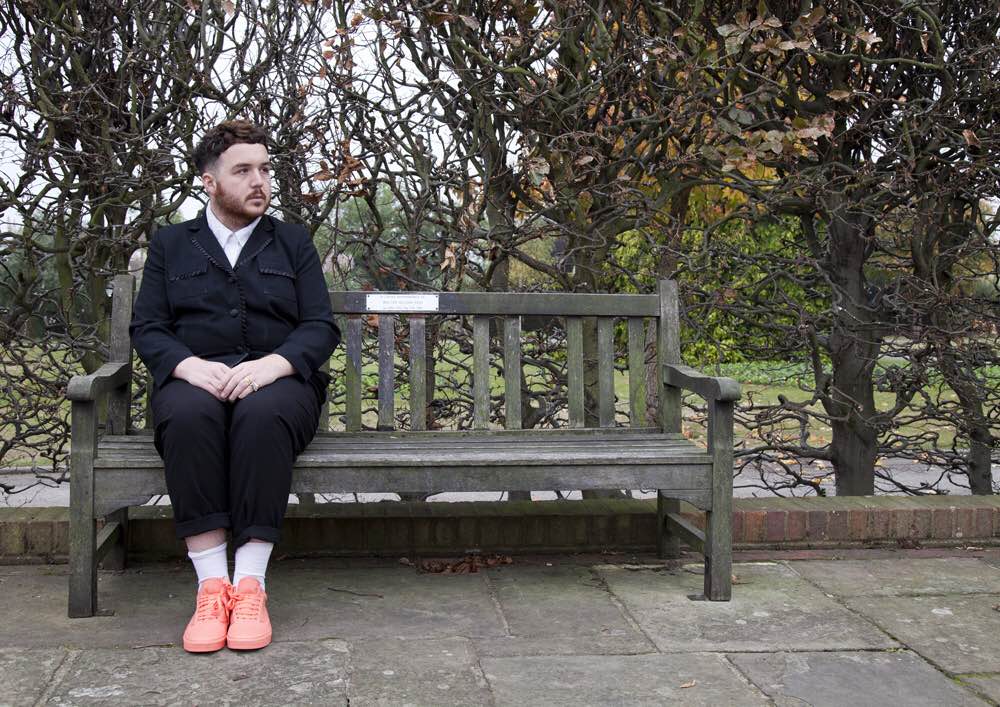
Lip-synch is a queer art form: discuss.
Of course it is! I think many a queen’s awakening has been in front of the mirror, lip-synching to one of the gay gods. I think it’s more than just an art form, I think it’s something that we do that is our awakening, is our respite when we can’t tell the world what we are. It’s the thing that gives us hope. It’s a thing for me that allowed me to explore my gender identity, my campness and my femmeness, and it’s something that we do to perform to each other. Essentially I’d say it’s more than a queer art form it’s essentially queer Folk, it’s the way that we’ve shared stories in social spaces for hundreds of years. Well, not hundreds of years – since we’ve got the recorded voice. I mean, I could say hundreds of years, it would just make it sound more grand.
What’s next for you?
Well, I’m making another really messy show! I’m making a show called Bravado which is my memoir of working class masculinity from 1991 to 1999. It’s about my experience as a queer boy growing up being surrounded by violent boys on an estate in North London and about those sexual experiences that aren’t really spoken about. They’re sexual experiences with young heterosexual men who are your age, and your sexual awakening and that relationship between you being a gay man who loves and want sexual attention from men but also at the same time feels alienated and hates them.
What’s your favourite Mariah Carey song?
Easy! ‘Up Out My Face’ which has got Nicki Minaj on it. I love that song because there are some really bizarre lyrics in there. Any song that’s got lyrics about Lego, I’m all about. And it’s got that weird breakdown at the end, and the video’s quite great and I think it’s the cusp of Mariah going from Mariah being great to what Mariah is now.
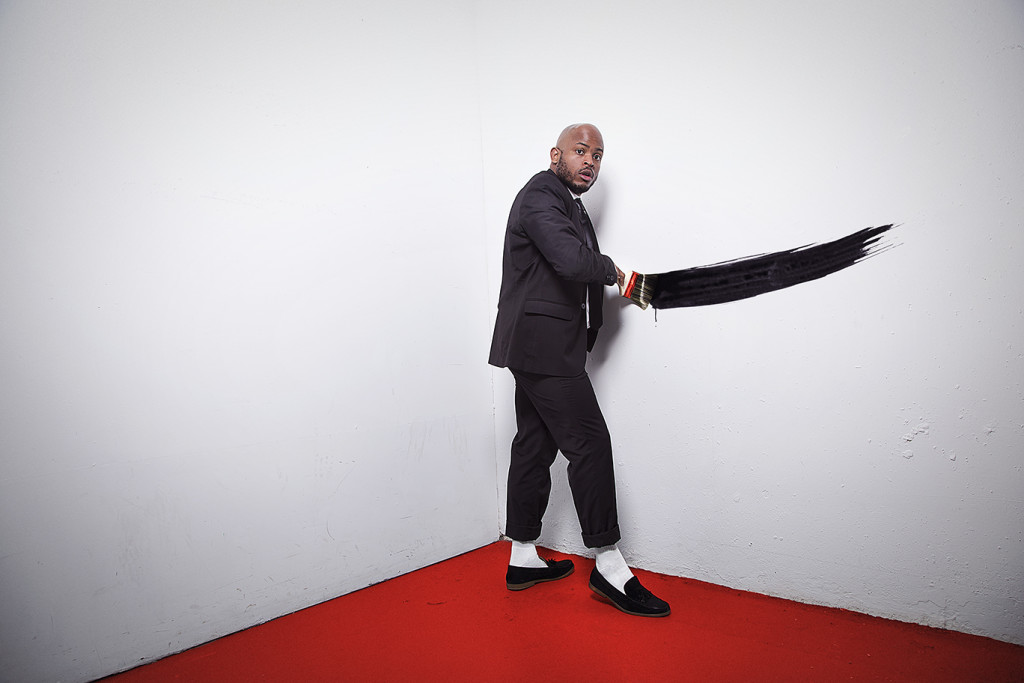
Putting Words in Your Mouth runs from 22nd November to the 3rd December at The Roundhouse, London. Post show on the 24th November Le Gateau Chocolat joins Scottee to talk about political and sexual awakenings and their experiences of outsiderness in a discussion that will be live streamed on Youtube. And following the performance on 29th November the artists in the show will discuss what they think about the project, the process and the politics, when they are interviewed by leading LGBTQI+ community leader Lady Phyll Opoku.
Images by Christa Holka, Holly Revell, Christa Holka.



